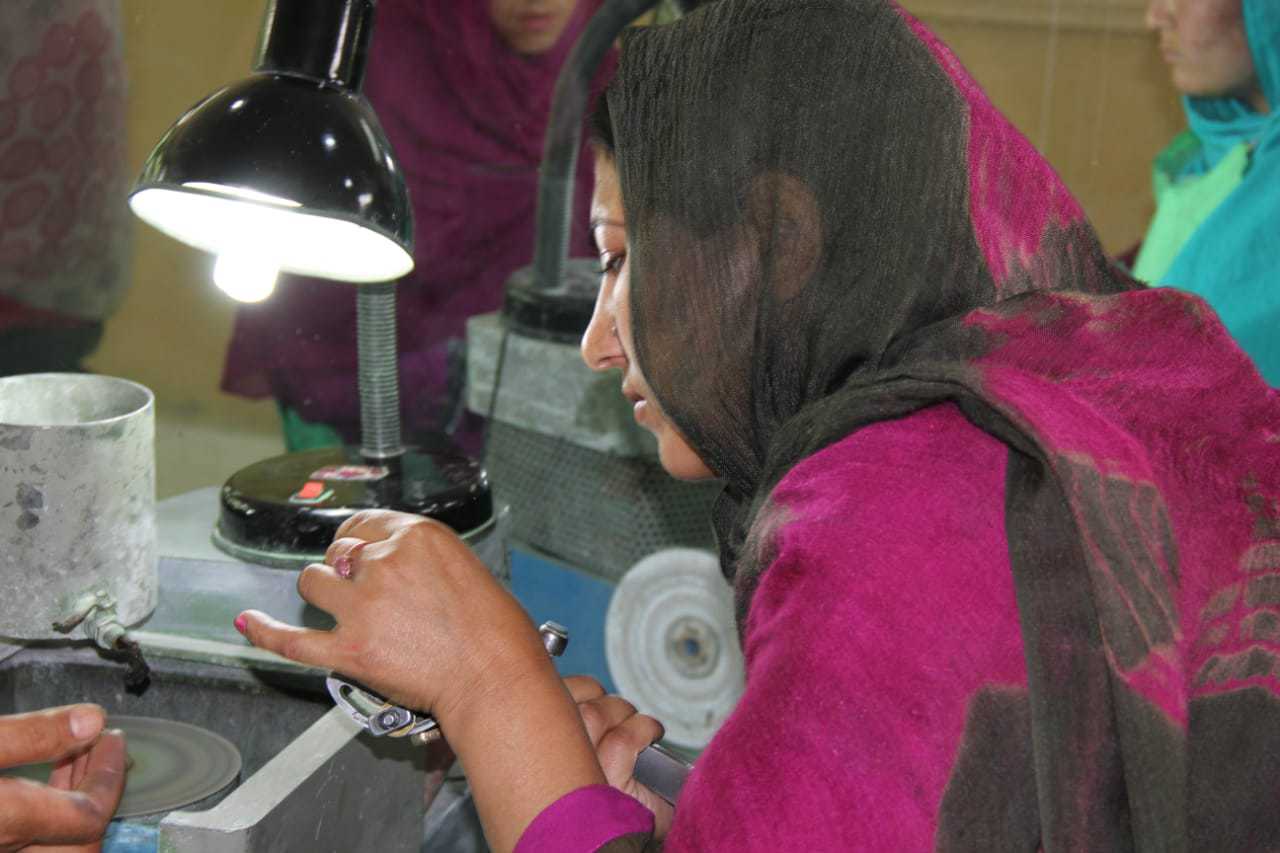RF operates in Gilgit Baltistan and Chitral – an area know for richness in natural resources. As a measure to alleviate poverty in the region, RF has created platforms through which people could use the available rich resources in a very conducive way. Since 2006, RF in association with its partner organizations, has made multiple interventions across its operational region under its skill development program. The skill development program has two components: gems cutting and polishing; and, stone masonry. RF has trained a number of people under both components. It has established and is still supporting gems cutting and polishing centers across GB where trained workers have been employed.
THE SKILL DEVELOPMENT INTERVENTIONS
Rupani Foundation, through its skill development interventions, has been able to make difference in the capacity, livelihoods, and earnings of a number of people in the underserved region of Gilgit-Baltistan, with the help of its partners: EC, USAID, GIZ, and Rupani Family. Following is a brief of the attainments:
1- Gems & Jewellary:
With the help of its partners, RF has been able to carry out three programs on Gems Cutting and Polishing ; establish 10 centres; and train 1,496 individuals of local workforce including men and women.
2- Stone Masonry:
Rupani Foundation has trained 1,315 men and women in stone masonry in its 13 centres. Established Stone Masonry Associations Gilgit-Baltistan. Developed a website for market linkages www.gbsm.com.pk
Potential and Challenges of Pakistan TVET Sector
Human capital is one of the potentialities of Pakistan even though often left unutilized. According to National Human Development Report 2018, Pakistan has one of the biggest youth bulk in the world. Around 60% of the population is young that is a major factor in ensuring a country’s sustainable development but the biggest predicament in converting this human resource into advantage is lack of skills and job opportunities for youth. Unemployment ratio has sky rocketed in recent years, either youth lack requisite skills or education to succeed a job placement. Majority of the youth lack marketable skills requisite to earn a living. Among youth, women are the most neglected and discriminated population and often counter inequalities in pursuing opportunities and accessing basic amenities of life. Due to low literacy rates among youth majority of them pursue informal sector and learn vocational skills.
According to TVET Sector Support Programme, Annually, 3 million young people enter job market, but as of 2015 there are only 476,850 places available on the formal Technical and Vocational Education and Training (TVET) through 3,581 institutes across Pakistan.
TVET institutes: 3,581
Youth Entering TVET: 3 million (*annually)

